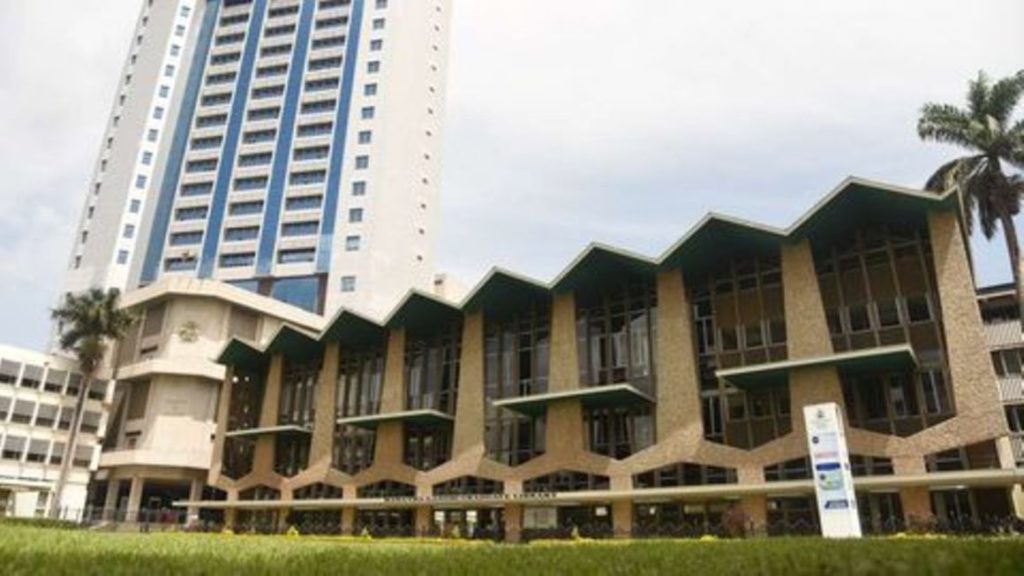University of Nairobi in Nairobi, Kenya. The country has come under pressure from the World Bank to close and merge the cash-strapped public universities. PHOOT | FILE | NMG Kenya has come under pressure from the World Bank to close and merge the cash-strapped public universities and loss-making parastatals in what would see thousands of public servants lose their jobs.
The multilateral financier reckons that Kenya should merge the institutions of higher learning because of duplication of courses and the need to cut spending.
The State-owned firms that the bank wants closed have turned losses for three consecutive years.
Kenya has 102 public universities and campuses — which posted a deficit of Ksh6.2 billion ($55.3 million) in the year to June and received nearly Ksh70 billion ($624.9 million) from the Treasury to run their operations.
Merging universities and campuses as well reviewing academic courses mean the institutions would have to let go of some staff. Public universities have an estimated 27,000 workers, including 9,000 lecturers.
The World Bank’s push for the closure of State universities and corporations was revealed in an advisory to the government after the fund’s board approved multibillion-shilling loans to support the country’s budget and help the economy recover from the effects of the Covid-19 pandemic.
“Address the proliferation of SCs [State-owned companies] and rationalise commercial and non-commercial SCs. For example, measures to address overlapping mandates and consolidating SCs in the education sector could improve the efficiency of public spending on higher education and reduce spending pressures," the World Bank said in the Kenya State Corporations Review.
"Accelerating the commercial SCs rationalisation agenda could help plug losses to the exchequer while increasing overall economic efficiency. A focus could be placed on systematically poorly performing SCs that have recorded persistent losses for an extended period (e.g., the last three consecutive years)."
Public universities have come under financial strain in recent years as a result of rapid expansion amid a dip in student enrolment.
They are expected to undergo reforms to cut their costs to make them financially viable.
The number of public universities and campuses grew from 49 in 2010 to 204 in 2017 before falling to 102 last year.Since 2016, several campuses have been shut across the country after the lower entry grade cut student population, adversely affecting the lucrative parallel degree programmes in which students paid fees based on market rates.The universities have been the hardest hit by the drop in the number of Kenya […]
